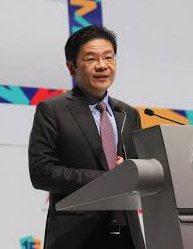SINGAPORE — Artificial intelligence (AI) is moving from a novelty to a necessity, prompting Singapore to triple its AI talent pool to 15,000 by enhanc
SINGAPORE — Artificial intelligence (AI) is moving from a novelty to a necessity, prompting Singapore to triple its AI talent pool to 15,000 by enhancing training and welcoming overseas professionals as part of its updated AI strategy. Deputy Prime Minister Lawrence Wong announced the enhanced approach on Dec. 4, emphasizing that with rapid advancements in AI—such as generative AI tools like ChatGPT—many fields are entering “uncharted territory.”
Speaking at the Singapore Conference on AI, DPM Wong stressed the need for Singapore to adopt a structured strategy for maximizing AI’s societal benefits while managing risks like cyber threats, deepfakes, and misinformation. “The Government will invest significantly in adult education and workforce training to enable workers to adapt to the coming changes,” said Wong.
The revised AI framework, named National AI Strategy 2.0: AI for the Public Good for Singapore and the World, emphasizes nurturing talent, building a sustainable AI industry, and developing world-class AI research and infrastructure. Singapore’s initial AI strategy from 2019 focused on targeted applications in sectors like healthcare and security. With this update, however, the scope will expand across sectors to address the broader societal impacts of AI.
DPM Wong outlined plans for bolstering AI-related roles such as data scientists and engineers and encouraging AI-focused businesses to develop new models and platforms. These can drive sector-wide innovation across industries, including advanced manufacturing, financial services, and biomedical research.
Recognizing the ethical and practical issues posed by AI, the government will foster a trusted AI environment and address responsible AI practices to counter data biases. While Singapore may not compete with larger nations in terms of raw computing power, the government will invest in necessary infrastructure to meet local research and industry needs, ensuring alignment with the country’s strategic AI objectives.
As AI technologies continue to evolve, DPM Wong concluded, Singapore will “remain agile and continually adapt its strategies to maintain a balanced regulatory approach that fosters both innovation and safety.”



COMMENTS